Hollywood has never shied away from plumbing the annals of history for inspiration. Oftentimes, it has led to highly entertaining films and Oscar-winning performances, as evidenced by films like Gandhi, Braveheart, and Titanic.
Although the dramatic value of these films is often beyond reproach, their historical accuracy is highly questionable. It must make sense from a filmmaker’s point of view to eschew strict adherence to the facts in order to focus on artistic merit, especially if the subject matter is so remote that it may as well be myth. Such is the case with the perennial fan-favorite Gladiator, which embodies both historical fact and blatant fiction.
10 ACCURATE: THE SYMBOL OF FREEDOM
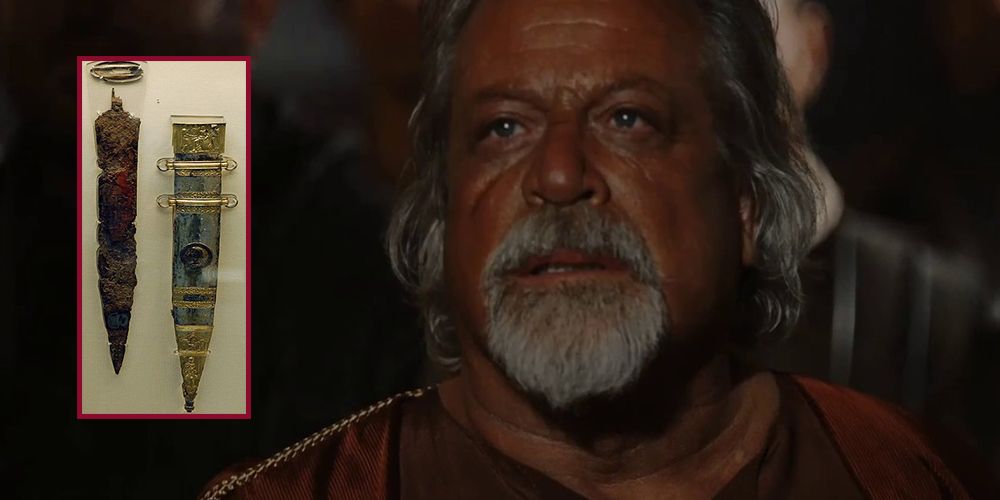
One of the more interesting characters in the film was Proximo, the former gladiator who after gaining his freedom, opened his own arena in one of Rome's satellites. His description of the process by which a gladiator would be given his freedom is historically accurate.
Once a gladiator had survived to reach retirement or had earned his freedom, he was given a wooden sword, or rudis, which symbolized that freedom. Although Proximo was freed by Emperor Marcus Aurelius, it was not necessary for every gladiator to receive that dispensation from the Emperor himself.
9 INACCURATE: THUMBS UP/THUMBS DOWN
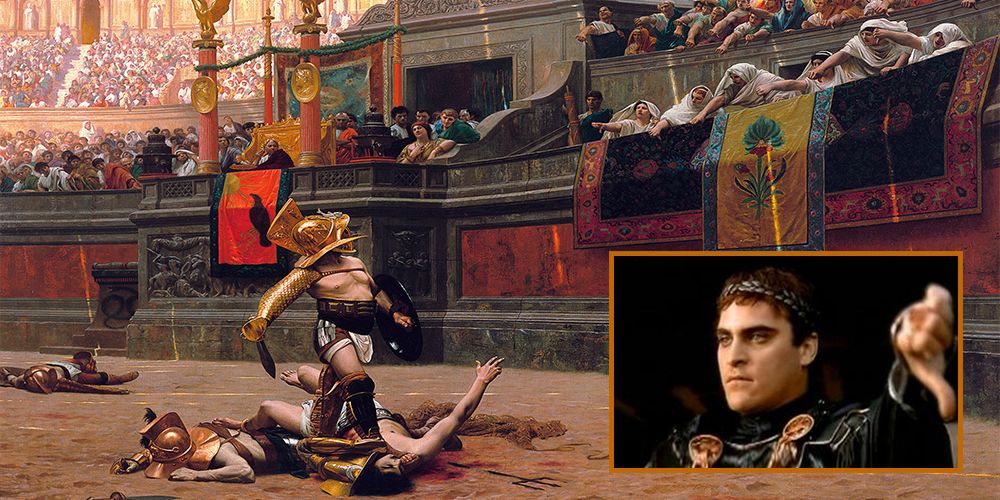
It’s a staple of all epic films from Spartacus to Gladiator; a sweaty combatant, bloodied and exhausted from a hard-fought battle, looks from his defeated foe to the emperor for a signal to either spare his life or slaughter him: thumbs up or thumbs down.
However, there is little to no evidence that this precise gesture was used, although some sort of gesture probably was. The erroneous belief comes from a painting of Roman gladiators by Jean-Léon Gérôme named Pollice Verso, which shows the audience using the thumbs down sign to call for the death of the defeated gladiator.
8 ACCURATE: WAR IN GERMANIA
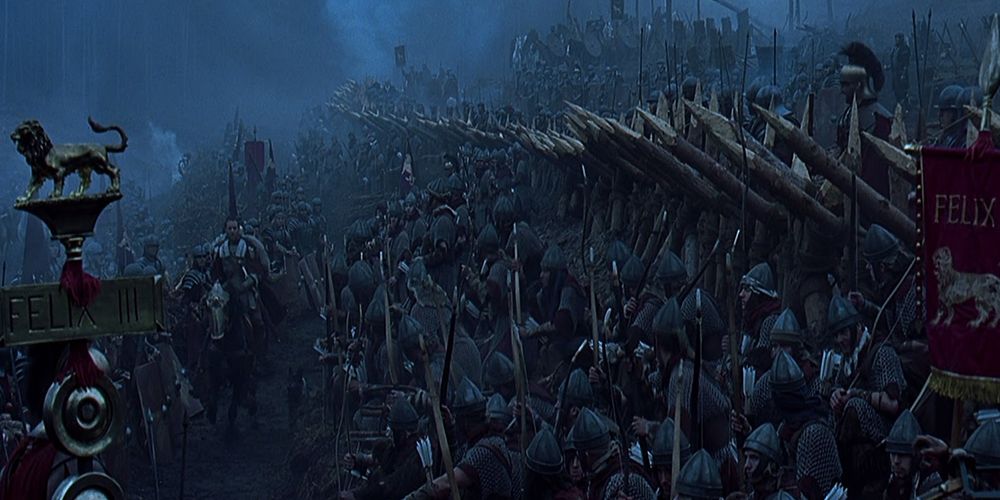
Gladiator had one of the most stunning and visceral openings to a classical epic ever filmed, a huge battle between the Roman army and the Germanic hordes. Shot in a frenetically jarring way, the sequence put the audience directly in the middle of the battle, sucking them into the ancient world right off the bat.
That the Roman Empire was engaged in a prolonged war with Germanic tribes is accurate. Marcus Aurelius spent the latter part of his career as emperor securing the northern frontier in an attempt at keeping the Germanic tribes at bay.
7 INACCURATE: MAXIMUS DID NOT EXIST
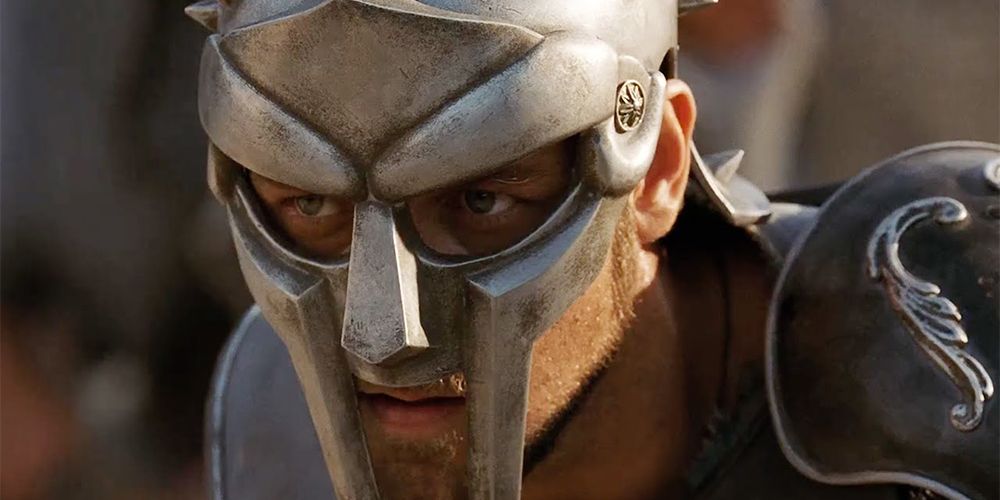
In a scene that arguably solidified Russell Crowe’s status as a leading man in Hollywood, the general-turned-gladiator removes his helmet and declares, "My name is Maximus Decimus Meridius, commander of the Armies of the North, General of the Felix Legions, loyal servant to the true emperor, Marcus Aurelius. Father to a murdered son, husband to a murdered wife. And I will have my vengeance, in this life or the next!”
As chillingly exalting as these words were, the person who utters them didn’t actually exist. The character is a complete fabrication created solely for the film and has no mention in history whatsoever.
6 ACCURATE: MAXIMUS’ CHARACTER
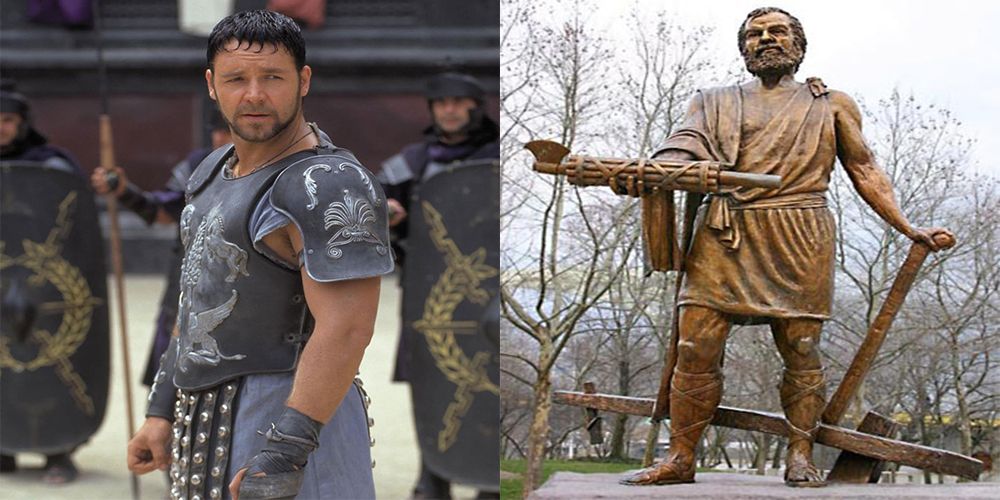
The character of Maximus Decimus Meridius may have been fictional, but his personality and characteristics were firmly steeped in Roman history.
During the time of the Republic, when Rome faced a dire external threat, the Senate would appoint one man to see it through, with the expectation that they would relinquish power when the threat had been vanquished. As the legend goes, the Senate approached Lucius Quinctius Cincinnatus while he was farming to subdue a hostile force. It took Cincinnatus a mere fifteen days to quell the threat, and once he did, he returned to his farming rather than keep his power. Maximus’ steadfast refusal to assume power in Rome mirrors that of the legendary Roman general Cincinnatus, as does his love of a simple life as a farmer.
5 INACCURATE: LUCILLA & COMMODUS’ “RELATIONSHIP”
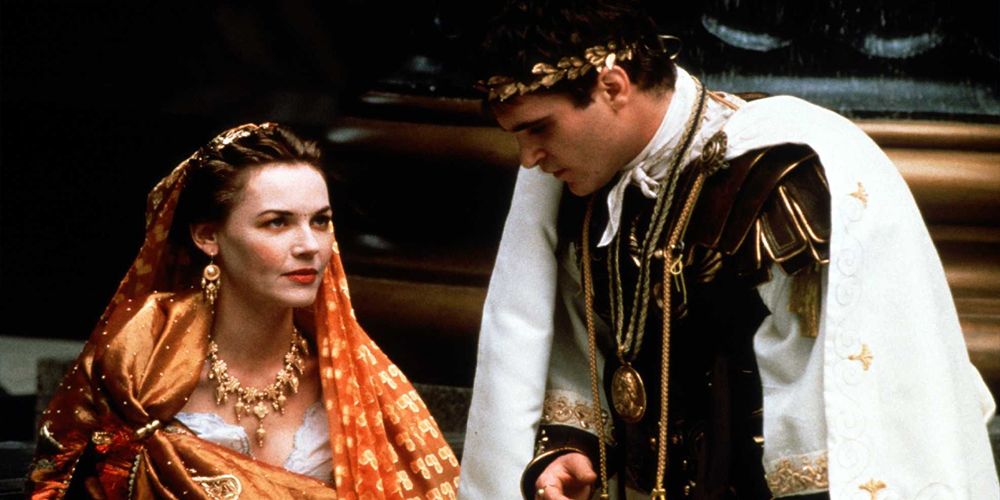
Lucilla was presented as an upstanding woman in Gladiator, concerned with the state of the Roman Empire and horrified at both her brother’s rule and his amorous affections towards her. Although it’s true that she did organize a botched assassination attempt on Commodus, there’s no evidence that he ever harbored any erotic feelings towards her.
It’s probable that Rome’s reputation as an opulent, corrupt and depraved empire perhaps inspired the film’s screenwriters to include such a salacious plot point in the script, but it has no basis in historical fact.
4 ACCURATE: ENMITY BETWEEN THE PRAETORIAN GUARD AND THE LEGIONS
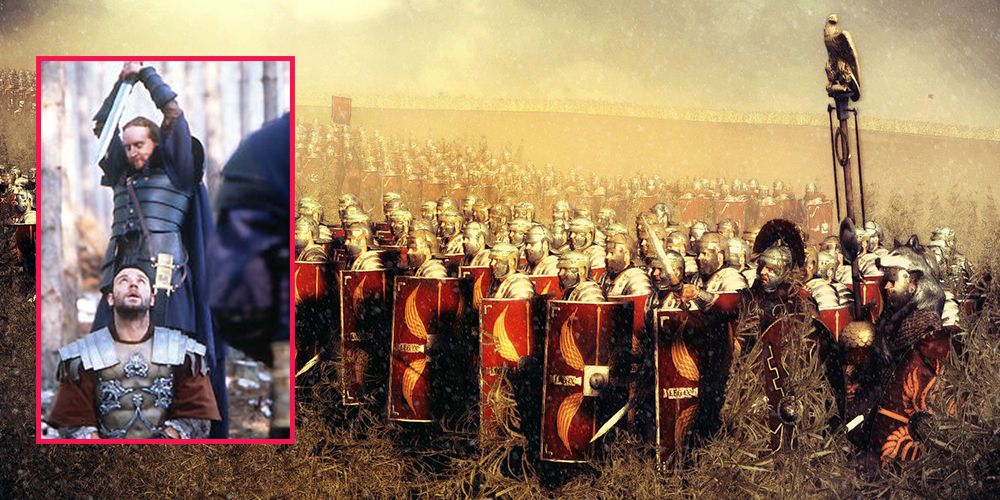
The Praetorian Guard was the Roman Emperor’s personal bodyguards and intelligence gatherers, keeping the Emperor safe from threat both physically and politically. That is unless the Emperor displeased them some way and they opted to dispose of him!
In any event, the life of a Praetorian Guard was different than that of a legionnaire, as they got to stay in Rome in relative comfort and safety while the legions fought on the outskirts of the Empire. This didn’t sit well with the average soldier, who looked at the Praetorians with disdain, disgust, and probably a little bit of envy. This is mirrored throughout the film, perhaps most prevalently in the scene where Maximus escapes his execution in the North, calling one of his would-be executioners “praetorian” in a derisive way before dispatching him.
3 INACCURATE: ROMAN “DEMOCRACY”
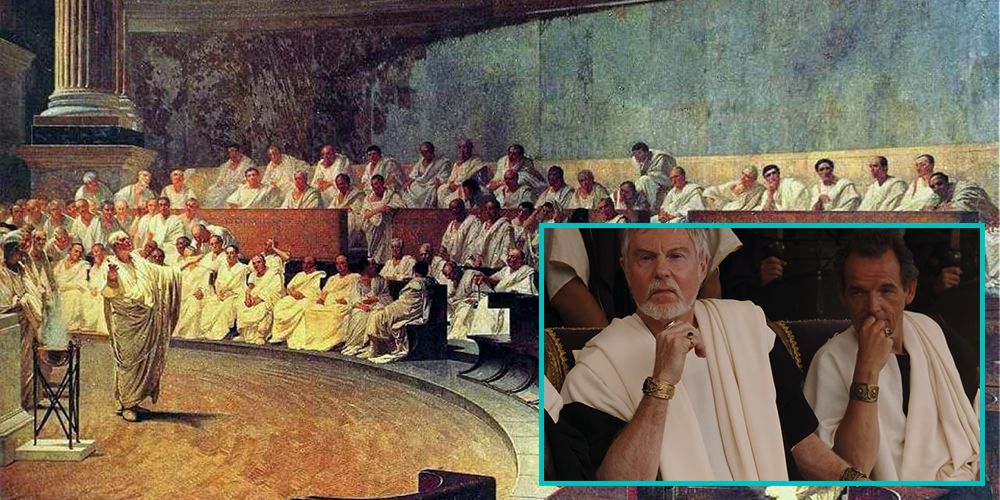
Audiences may have thought the Roman Empire more progressive than they originally perceived when Gracchus states that, “...the Senate is the people, sire. Chosen from among the people. To speak for the people,” envisioning a state similar to modern forms of representative democracy.
Gracchus’ statement is somewhat misleading, as the Roman Senate’s composition was actually made up of representatives from Rome’s oldest leading families. Eventually, the nouveau-riche and provincials gained entry as well, but the interests of the Senate were usually selfish in nature, looking to increase personal and familial stature and rarely looking out for the common folk.
2 ACCURATE: LOYALTY OF THE LEGIONS
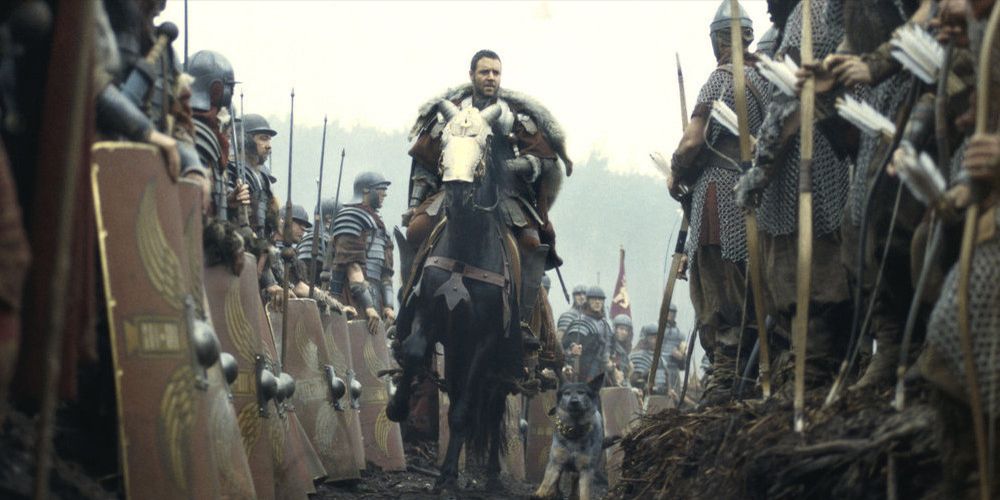
When Maximus tells Gracchus, “Let my men see me alive and you shall see where their loyalties lie,” he wasn’t kidding. Roman armies were extremely loyal to their generals, for many reasons.
First of all, there comes a sense of strong loyalty and camaraderie from having fought and bled together. Secondly, Roman generals were often responsible for securing their men’s retirement packages, in the form of land, pensions, or the promise of spoils from war. Generals who ate with their soldiers, slept in the same barracks, fought side-by-side with them, and guaranteed their comfortable retirement were often idolized and fought for till death.
1 INACCURATE: DEATHS OF MARCUS AURELIUS & COMMODUS
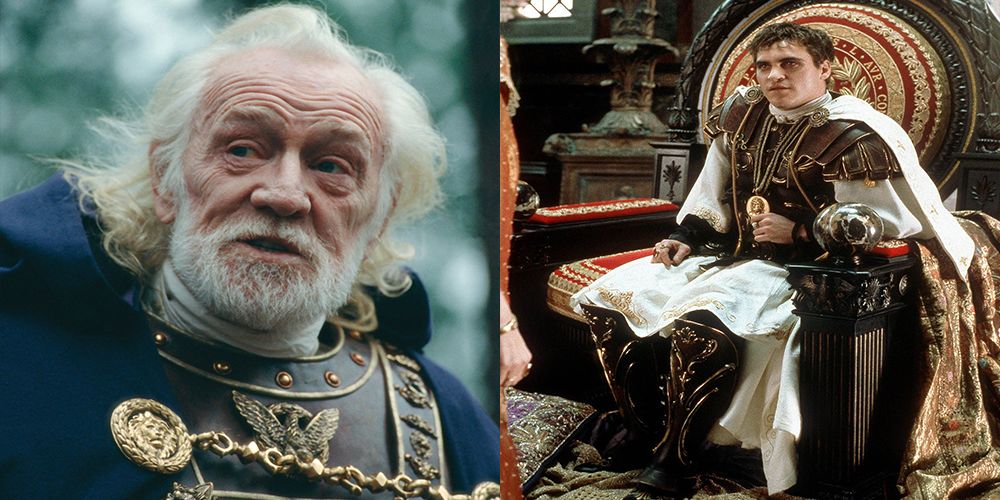
Marcus Aurelius was one of the greatest Emperors of Rome, the last of the “Five Good Emperors” of the Antonine Dynasty and historically renowned as a Platonic “philosopher-king” for his works in Stoic philosophy. Although it makes for a compelling drama to have him smothered by his son Commodus so he could claim the throne, Marcus Aurelius actually died of natural causes.
Speaking of Commodus, although he routinely performed in the Coliseum (to the disdain and horror of the Romans) no emperor ever died in it. Commodus was actually assassinated by his sparring partner, a wrestler by the name of Narcissus, who had been bribed in a plot to replace the mad emperor.
from ScreenRant - Feed https://ift.tt/3ezMXkV






0 Comments
Please don't use vulgar comments and avoid discussion on Religious matters